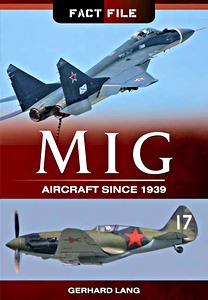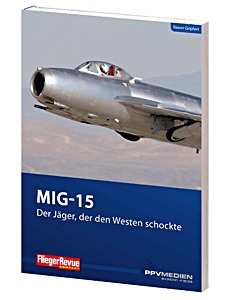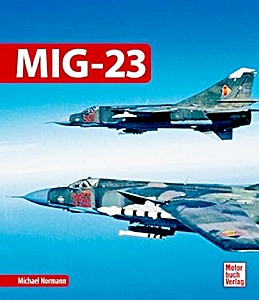MiG Aircraft since 1939 (Fact File)
At the beginning of the Second World War, MiG was founded by two aircraft engineers, Artyom Mikoyan and Mikhail Gurevich. Thus began a unique history. For decades, MiG aircraft have been among the most well-known and powerful military aircraft in the world and broke a number of records, both through their flight performance and with their large production numbers.
Starting with the MiG-1 from 1939 to the MiG-35 of the year 2011, the world famous aircraft manufacturer and its products are presented in this Fact File edition. Numerous pioneering prototypes are described.
Product details
| Author: | Rudolf Hofling |
|---|---|
| Details: | 128 pages, 8.5 x 5.5 in (21.5 x 14 cm), paperback |
| Illustrations: | 140 b&w and color photos |
| Language: | English |
| Publisher: | Pen & Sword Books Ltd (GB, 2015) |
| Series: | Fact File |
| ISBN: | 9781783831708 |

MiG Aircraft since 1939
Language: English
View price, availability, and reviews on Amazon
View on Amazon.comView on Amazon UK
View on Amazon CA



